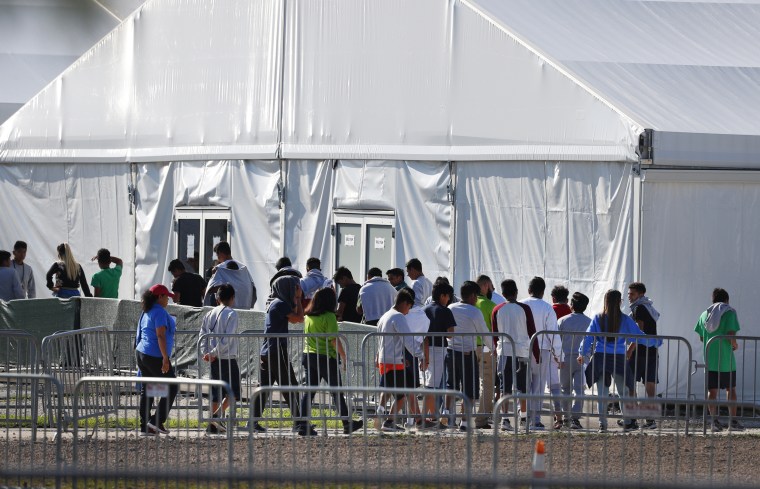WASHINGTON — Migrant children separated from their parents by the government under the Trump administration's "zero tolerance" policy in the summer of 2018 exhibited a particularly high number of mental health challenges, according to a report released Wednesday by the Inspector General for the Department of Health and Human Services
The report also found that facilities caring for unaccompanied migrant children were often "limited in the effectiveness" in addressing the mental health needs of those in their care, primarily due to the high caseload and low number of clinicians, officials said during a call with reporters on Wednesday.
Many of the separated children were younger than the teenagers who typically fall to HHS care after crossing the border without their parents, and they were more likely to feel anxiety and abandonment, said the report.
"The little ones don't know how to express what they are feeling," one mental health worker told the Office of Inspector General, according to the report.
One boy, who was described as being around 7 or 8, was given no explanation as to why he was separated from his father. A mental health worker reported: "Child was under the delusion that his father had been killed and believed he would also be killed. This child ultimately required emergency psychiatric care to address his mental health distress."
Another worker said children who had been separated from their parents felt manifestations of psychological pain, "You get a lot of, 'my chest hurts,' even though everything is fine [medically.]"
A second report released from the Office of Inspector General on Wednesday found that six facilities out of 45 visited did not require background checks for employees. Two of the facilities were "influx" facilities build to absorb the rapidly increasing number of unaccompanied migrant children and were exempt from both FBI and state child protective services agency background checks. Four others were exempted by state child protective agencies because the state in which they operated did not require it.
Officials from the Office of Inspector General said no employees were known to be terminated as the result of background checks at those six facilities, which eventually occurred after the employees were hired. But at the tent city for children in Tornillo, Texas, which closed in January, 26 out of 1500 employees were fired as a result of background checks.


